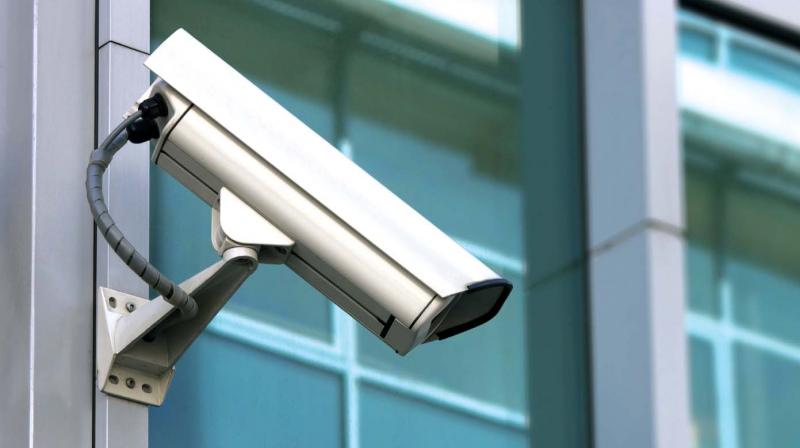Recording will not be open to RTI, Supreme Court says

Hyderabad: The Supreme Court has recently directed that CCTV cameras be installed inside courtrooms and at important locations within the court complex in at least two districts in every state and Union Territory in the country.
In March 2017, a two-member bench of Justice A.K. Goel and Justice U.U. Lalit had ordered that cameras be installed inside courtrooms on a trial basis, and observed that “we have already incorporated safeguards of footage of recording not being given for any purpose other than the purpose for which the High Court considers it appropriate."
The top court, which was initially reluctant to allow recording of court proceedings, agreed with the Union of India’s argument that "CCTV cameras are the culture of the day and promote good governance.”
The bench, while dealing with a petition by one Pradyuman Bisht, seeking direction for audio-video recording of the trial proceedings of his matrimonial dispute to ensure a fair trial, had ordered on March 28, 2017: “We direct that at least in two districts in every State/Union Territory (with the exception of small states/Union Territories where it may be considered difficult to do so by the concerned High Courts) CCTV cameras (without audio recording) may be installed inside the courts and at such important locations of the court complexes as may be considered appropriate.”
On August 14, the bench modified its order while considering the suggestion from some of the High Courts that audio recording should also be permitted, and ruled that audio recordings will also be allowed.
Many PILs demanding recording of proceedings in courtrooms have been dismissed by the Supreme Court and certain High Courts in the past because it impinges on the privacy of judicial officers.
In the Pradyuman Bisht case, the Centre pointed out that there was “acknowledged utility of CCTV cameras in recording contemporary events which may be useful for any monitoring authority”.
While directing that cameras be installed in courtrooms, the bench said that the footage “will not be available under the RTI Act and will not be supplied to anyone without the permission of the concerned High Court. Installation may be completed within three.”
The bench directed the Centre, the Union IT ministry in consultation with the e-committee of the Supreme Court to lay down technical specifications and other modalities, including price range and sources of supply, for installation of CCTV cameras.
The Supreme Court opined that similar orders may be issued by the government for tribunals, noting that recordings will help the constitutional authorities and the High Courts in exercising jurisdiction.

